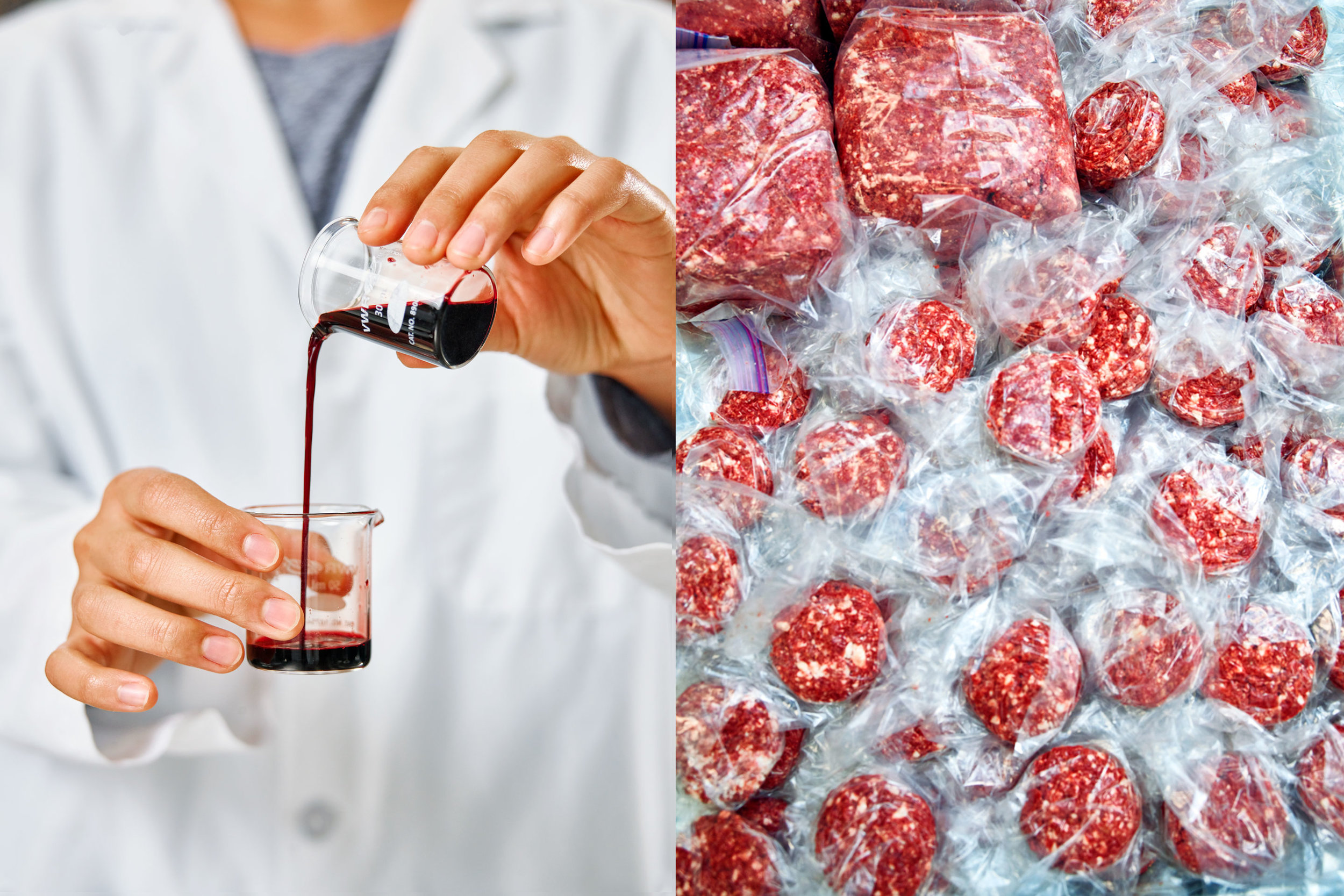Turning A Blind Eye - How Plant And Cell Based Meat Options Mask Our Own Guilt
Are we just disguising the true problem our food industrial system?
Jamie Mah @grahammah
“Your scientists were so preoccupied that they could, that they didn’t stop to think if they should.” — Dr. Ian Malcolm, Jurassic Park
Back in February I first wrote about Plant and Cell based meat. Just last week, I wrote about Fishless Fish.
Our market is changing. Rapidly.
Technology is creeping into how we look at meat and its alternatives. Consumers are ripe and eager to dig into this new form of food. Similar to how margarine was the latest thing 50 years ago, our ability to create new food sources has given our economy and food system options we once thought were unthinkable.
The idea of possibly eating a plant based hamburger, one that tastes just like a real hamburger, which is made of pea or soy protein or possibly cow cells, would have struck as fantasy 30 years ago. Even 10 years ago. Change is afoot and this new world, where even Burger King and Tim Hortons now offer these meat alternatives, has altered the way we once thought the idea of meat could be.
Yet, for all this growth and evolution, I wonder: are we just masking the true problem our food industrial system?
When I think of this question I’m always reminded of Jurassic Park. No, not the fan pit for the Toronto Raptors, but the movie. Specifically one scene in particular involving Dr. Ian Malcolm, who was played by actor Jeff Goldblum. When presented with the idea and revelation of living dinosaurs, Dr. Malcolm can’t help but ask the obvious: was this a good idea?
Just because we can do something, does it mean we should?
Factory farming happened by accident, when in 1923 Mrs. Wilmer Steele of Delaware happened upon an accidental order of 500 chicks instead of 50. This misfortune turned her business and that of agricultural farming on its head as she would change how she reared and grew her birds forever moving forward. This led to massive innovation and cheaper meat.
But as this advancement was had, so were cuts to quality of life for the chickens. Feed was changed. Environments were compromised. All in the name of profit. Soon small run family farms went out of business, as they were left to be swallowed up by large corporations. Think Tyson or Purdue.
Throughout this transformation we eventually lost sight of our ability to understand that what we were doing was wrong. Chickens shouldn’t be kept in cages the size of a piece of paper. Cows shouldn’t be eating corn. North Carolina shouldn’t have tailing ponds the size of swimming pools.
As per The Guardian:
“They fill massive lagoons with [waste] and they take that lagoon stuff and spray it over fields,” he told Pod Save America, recalling a trip to North Carolina late last year. “I watched it mist off of the property of these massive pig farms into black communities. And these African American communities are like, ‘We’re prisoners in our own home.’ The biggest company down there [Smithfield] is a Chinese-owned company, and so they’ve poisoned black communities, land value is down, abhorrent …This corporation is outsourcing its pain, its costs, on to poor black people in North Carolina.”
We’ve created an agricultural disaster, and in doing so, all we’ve come up with is chemically formulated alternatives that we hope will replicate the very food we’ve essentially destroyed.
I recently read Chef Dan Barber’s 2014 book, ‘The Third Plate’. In hit he describes the spiralling system we’ve created which has left us in this predicament.
“Instead, the end result is a food system that plays out like an ongoing national tribute to Rube Goldberg. The overproduction of grain helps enable the overproduction of chicken, which lowers the price of chicken, which means even more chickens are raised to make up for the declining revenue. That leads to an even more unneeded chicken. So it’s fed to other animals it probably shouldn’t be fed to, like fish (which are increasingly farm-raised, in part due to the offshore pollution caused by producing too much grain). And then the overproduced chicken gets dumped to places like Mexico. To compete, Mexico turns to the same kind of system, the get-big-or-get-out-system that feeds on itself: produce more chickens at lower prices. Laid-off poultry workers seek work in America, often illegally, which drives down wages and helps poultry companies produce…more chicken.”
Instead of fixing our food industrial problem, we’ve put a band-aid on the issue as we’ve focused on finding synthetic alternatives. These new options, as we’ll most likely see, could potentially be more harmful than we can ever imagine. The idea of a cell based steak sounds appealing in that it causes zero animal suffering.
But at what cost?
How will my body respond to this type of food?
Why did it take us replicating a steak to realize that factory farming was awful? Is this how we solve our problems?
The reality of this situation is that companies such as Beyond Meat and Impossible Foods will continue to grow. Their products have become popular substitutes for those looking to eat less meat or no meat altogether. This in theory is a good thing.
Cell based meat isn’t available just yet, but it soon will be. How it will affect the overall industry is yet to be determined.
In the end, however, none of these options changes who we are. We still raise and treat our food source animals horribly. Overfishing is a real issue. Global warming due to animal agriculture is a big problem.
Until we rectify with ourselves that these problems exist, plant and cell based meat alternatives are just a distraction we’re using to mask our own guilt. My hope is that they’ll spur change. Let’s not forget this.
